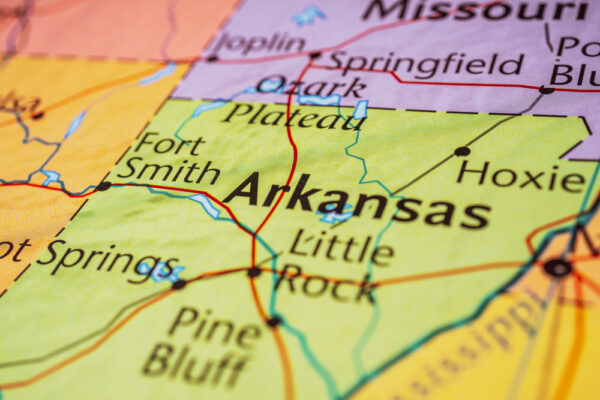Federal Appeals Court Won’t Review Radical Arkansas Redistricting Ruling
High-stakes case involves challenge to radical ruling that rejected decades of precedent that protected voters under Section 2 of the Voting Rights Act. Plaintiffs exploring next legal steps.
LITTLE ROCK, Ark. — The Eighth Circuit Court of Appeals today announced it will not rehear the high-profile voting case, Arkansas State Conference NAACP v. Arkansas Board of Apportionment.
The American Civil Liberties Union, ACLU of Arkansas, Law Office of Bryan L. Sells LLC, and Dechert LLP are challenging the Arkansas state House map on behalf of the Arkansas State Conference NAACP and the Arkansas Public Policy Panel. The groups argue that the map unlawfully stifles the voting strength of Black Arkansans in violation of Section 2 of the Voting Rights Act of 1965 (VRA).
In a 2-1 ruling in November, a divided Eighth Circuit panel backed a district court decision that radically concluded voters may not sue to protect their voting rights under Section 2 of the VRA. That assessment disregarded decades of precedent permitting private individuals to protect their voting rights under Section 2.
No court had ever denied private plaintiffs the ability to bring their Section 2 claims in federal court — with the sole exception of the district court and the divided Eighth Circuit panel. More than 400 Section 2 cases have been litigated in federal court in the past four decades to protect the voting rights of racial and language minorities. Private plaintiffs have brought the vast majority of them.
The plaintiffs petitioned for a rehearing before the entire Eighth Circuit Court of Appeals, which was declined today. Three judges would have reheard the case.
Writing in dissent from the denial, Judge Steven Colloton called the panel’s decision “flawed” and disagreed with its conclusion that private parties cannot enforce Section 2. He also would have returned the case to the district court to allow the plaintiffs to assert their claims under a different statute. In denying rehearing, the judge concluded, “the court regrettably misses an opportunity to reaffirm its role as a dispassionate arbiter.”
Today’s ruling — like November’s 2-1 decision — applies only to states in the Eighth Circuit. While it blocks this challenge to the Arkansas House map, neither today’s decision nor the divided panel decision foreclose other avenues for private plaintiffs nationwide to sue to protect their rights under the Voting Rights Act.
The groups are exploring next legal steps, and had the following reactions:
Sophia Lin Lakin, director of the ACLU’s Voting Rights Project, who argued the appeal: “The Eighth Circuit Court of Appeals had a critical opportunity to reverse the panel’s radical and dangerous ruling. That it chose not to rehear the case ignores the gravity of what’s at stake — generations of precedent protecting voters and in turn our democracy.”
Holly Dickson, executive director of ACLU of Arkansas: “The decision by the Eighth Circuit to not revisit the case is a serious blow to the rights of Arkansas voters. By allowing this ruling to stand, the court set a dangerous precedent that could have far-reaching implications for our democracy. However, our fight is far from over. We are exploring all available options to ensure that every Arkansan’s right to vote is protected and respected.”
Kymara Seals, policy director at the Arkansas Public Policy Panel: “Today’s decision is a setback in our longstanding battle for fair and just representation in Arkansas. This refusal to reconsider the ruling undermines the safeguards against racial discrimination in voting, as established by the Voting Rights Act. We are undeterred in our commitment and are currently assessing the next steps to challenge this decision, which we believe is fundamentally flawed and contrary to the principles of equal representation.”
Barry Jefferson, president of the Arkansas State Conference NAACP: “The refusal of the Eighth Circuit to grant a rehearing is not just a denial of our request; it’s a denial of justice for the Black community in Arkansas. This decision ignores the vital protections against discrimination that have been hard-won over decades. We are now more determined to find alternative pathways to challenge this unjust ruling and continue our fight to ensure that every voice is heard in our state’s political process.”
Order: /cases/naacp-v-arkansas-board-of-apportionment?document=Order-Denying-Rehearing
Statement: /press-releases/federal-appeals-court-wont-review-radical-arkansas-redistricting-ruling
Case background: /cases/naacp-v-arkansas-board-of-apportionment




